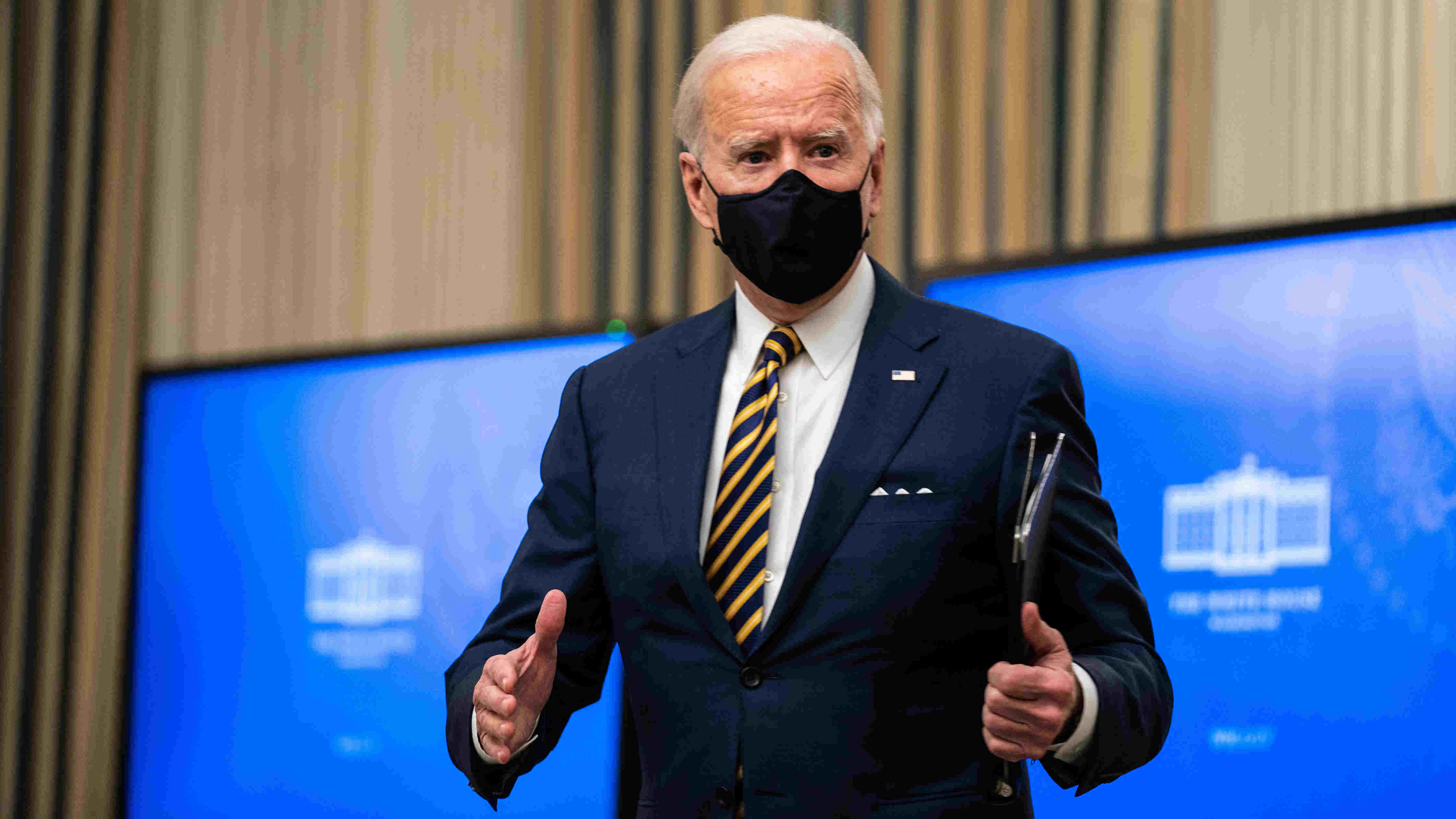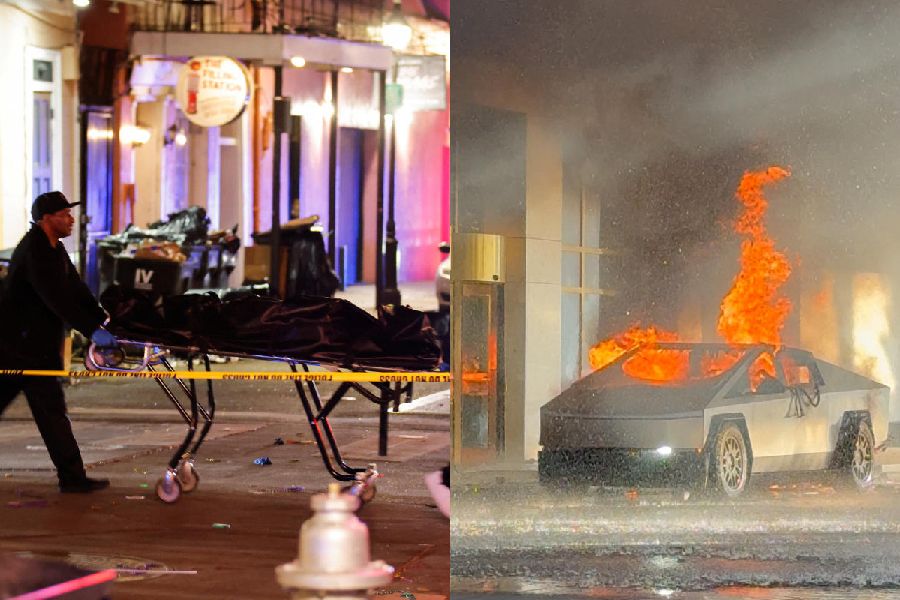President Biden for the first time expressed support for a ceasefire between Israel and Hamas militants in Gaza on Monday, as the devastating rocket and missile war there gave no sign of easing after the deaths of dozens of Palestinian children.
But he also reiterated that Israel had a right to defend itself, stopping short of publicly calling on Israel to change its approach despite rising international condemnation.
The statement, issued after Biden spoke with Prime Minister Benjamin Netanyahu of Israel, was the furthest that the President has gone towards calling for an end to the conflict. But it also reflected a continued and deep reticence by world leaders to criticise Israel, and a failure of diplomacy to persuade the two sides to curb a rising cycle of violence.
For their part, Israel’s leaders have said that they are in no hurry to end the airstrike campaign and have insisted that the military will continue until it reaches its goals of stopping Hamas’s rocket barrages and making the group “pay a price”.
“The directive is to continue striking at the terrorist targets,” Netanyahu said on Monday after meeting Israeli security officials. “We will continue to take whatever action necessary in order to restore quiet and security for all the residents of Israel.”
Over eight days, Hamas has fired nearly as many rockets — 3,350 so far — as it did over all of the 50-day conflict between Israel and Hamas in 2014, and has killed nine civilians in Israel, including two children, and at least one soldier.
But in Gaza, Palestinian families have paid a much greater price. Since May 10, at least 212 Palestinians had been killed in Gaza, including 61 children, according to health officials there, and many have been left homeless. Gazan officials said that more than 600 homes or businesses had been destroyed and more than 6,400 damaged, and UN officials said that at least 800,000 residents lack regular access to safe drinking water.
Though civil unrest by Palestinians and Arab citizens of Israel quieted down in recent days, a general strike and demonstrations have been called to protest Israel’s air campaign in Gaza and other measures targeting Palestinians, organisers said.
In Washington, Biden’s language was carefully couched. It notably avoided a demand that the ceasefire be “immediate”, language that Democratic senators used in statement earlier in the day.
It appeared to be an effort to press Israel to suspend its airstrikes — assuming Hamas also ended its barrage of rockets into Israeli cities — despite Netanyahu’s declaration that Israel would keep fighting until it had gravely reduced Hamas’s military capacity, including an extensive network of underground tunnels.
In the statement, the White House made clear that it expected others in the region to play a major role, saying Biden “expressed his support for a ceasefire and discussed US engagement with Egypt and other partners towards that end”.
But he set no deadline and did not appear before cameras to make a public demand — just as he avoided making statements or taking questions during outings this weekend near his home in Delaware.
The Israeli military says it is focusing on airstrikes against the tunnel network because Hamas, which controls Gaza, uses the tunnels to move people, weapons and equipment around the densely populated coastal strip undetected. Referring to the subterranean transit system as the “metro”, Israeli officials say the air campaign against the network, which was years in the making, marks a new phase in the long battle between Israel and the militant groups.
Concern over the role of Gaza tunnel networks in attacks against Israelis was a rationale for the military ground invasion of Gaza in 2014, which caused huge loss of life.
Since then, Hamas has greatly expanded that network, according to Israeli intelligence officials. But they say the militants’ focus now is not on passages that reach all the way into Israel, but rather on the creation of shelters for Hamas commanders and fighters within Gaza — from 20 metres beneath the ground to as deep as 70 metres — and a sprawling transportation network for weapons and fighters.
An Israeli Air Force official, who briefed reporters on Monday on the condition of anonymity, in line with military rules, said that reinforced concrete tunnels ran for hundreds of miles inside Gaza. Israel was not trying to destroy it all, he said, but to create “choke points” that would seal sections off and make parts of the network inoperable.
But above ground, whole structures within Gaza are tumbling down or being scorched and blasted while the airstrikes continue.
At least seven Palestinians were killed in Gaza in Israeli strikes on Monday, officials said, including a man Israeli officials described as an important commander for the militant group Islamic Jihad. At least two civilians were reported killed when one strike hit an office building, Gaza officials said.
On Sunday, intense Israeli bombing made it the deadliest day yet for Palestinians, with at least 42 people killed, including at least 10 children, after an attack on a tunnel network caused three buildings to collapse.
Raji Sourani, of the Gaza-based Palestinian Centre for Human Rights, said that the main effect of Israel’s bombardment has been to terrorise Gazan civilians and ruin their homes and businesses.
He called Israeli bombardment of the tunnels in recent days “meaningless” given the network’s scale.
“They want the civilians to revolt against the resistance,” he said, referring to provoking a public Palestinian uprising against Hamas rule.
“And this is not going to happen.”
Since the underground tunnel system is clandestine, Hamas officials are evasive when asked about its existence, let alone how badly it has been hit or whether operatives have been trapped inside by the Israeli bombardments over the past week.
New York Times News Service











